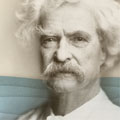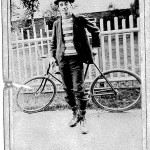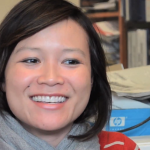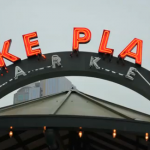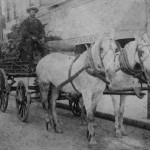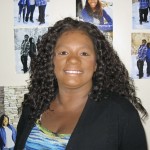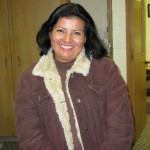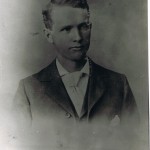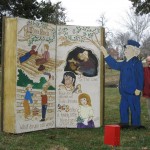On a Friday afternoon, Merlene Davis is playfully cussing out John Carroll, her former editor. We’re in a cold first-floor conference room of the Lexington Herlad-Leader, and Carroll had recommended we talk to Davis during our stop in Lexington. Davis—a gregarious, warm woman who pretends to be ornery—is worried about the interview. She’s furiously wiping her forehead, afraid she’s going to be too shiny on camera.
“Lord have mercy!” she cries, several times.
Davis really had no need to worry; she’s a natural storyteller and one of our most powerful interviews. Davis has been a columnist at the Herald for almost 20 years, and during our conversation, she expressed her pessimism about ever truly ending prejudice.
Simply inquiring about her background invites her to tell a story. Davis, born and raised in Kentucky, flirted with education all her life. In college, she was studying to become an English teacher when she “somehow got wrapped up in the civil rights era.” “I decided ‘I don’t need college!’” Davis says. She started a family. Then at 28, she went back to school and, not satisfied with a specific program, bounced around different possibilities. Eventually she attended a summer program for minority journalists and found her career.
Although Davis has studied a variety of subjects in several different settings, she has never seen the fifth grade and doesn’t know what the curriculum is like.
She skipped fifth grade not because she could, but because she had to. Davis was one of a few students to integrate Mary Lee Cravens Elementary School in Owensboro, Ky. (Watch the video to hear Davis tell the story.)
“We all ended up in the sixth grade because as far as I could tell, Mrs. Olive Bopp was the only teacher in the school that would take us,” Davis said. “So I have no idea what the fifth grade’s like.”
Instead, she sat through two sometimes painful years of sixth grade. In the classroom, Davis developed a severe stiff neck. It never happened on the weekends. Her mother suggested that she was probably holding in a lot of tension.
Davis’ mother, who had wanted her to integrate the school system, then told her something that she has never forgotten.
“She said, ‘You know you’ll be okay as long as you remember you cannot be as good as your white classmates,'” Davis recalled. “‘You have to be better than.'”
“Better than” is a motto that Davis has adopted.
“I have not seen when I’ve been able to react to an issue or be involved with something on the same level as a white person,” she said.
She raised her three children to be “better than” as well. She said her daughter took her advice, became trilingual and spent time in Japan. She excelled. One of her sons didn’t. He chose drugs and is about to enter the prison system, Davis said.
Davis is not optimistic about the future of prejudice. “I don’t see it as improving,” she said. “I see it as changing. We just gotta step on somebody to make ourselves taller, and I don’t know why.”
Lexington marked our trip’s entry into the South, and Davis explained some of the differences between adjusting in the North and the South. For one, it’s less diverse and less accepting. Despite the South’s reputation for hospitality, it’s not the reality. “All I know is we’re not hospitable, we’re not welcoming,” Davis said. “We will do it publicly, but behind closed doors, what are we saying?”
It’s not strictly the dynamic between blacks and whites, either. Jews, Native Americans and Hispanics have all faced or continue to face prejudice. The black community, Davis said, is not accepting of gays and lesbians. “Why would you stomp on somebody else when you’ve been stomped on?” Davis asked. “I don’t understand.”
Davis is frustrated with all groups. She said, “I keep hearing little tidbits, little slights, that make me go, ‘I thought we crossed that barrier.’”
Alyssa
Video by Dan Q. Tham

